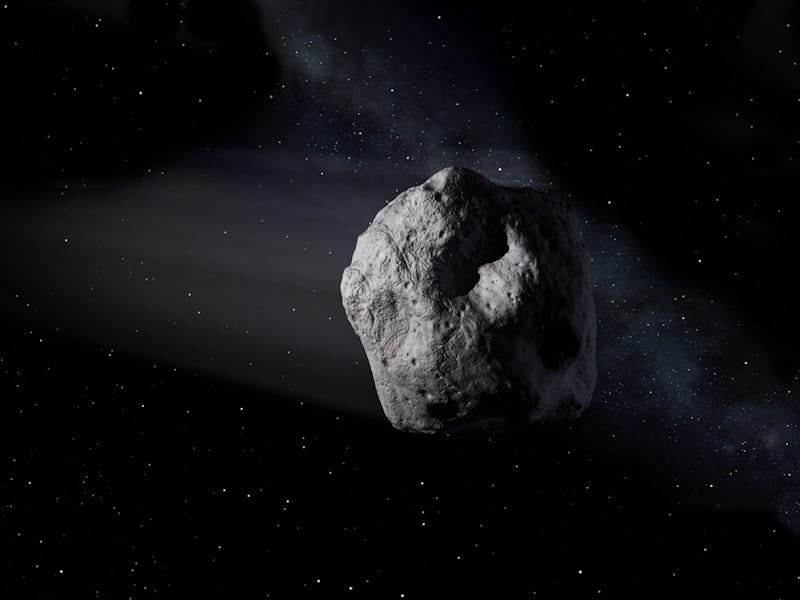Our solar system is a pretty exclusive club. But recently, scientists identified what might be an asteroid — or comet — from another part of the Milky Way just passing through our cosmic neighborhood. It could be the first foreign visitor of its kind.
According to NASA, this potentially “interstellar object” has been named A/2017 U1 by the Minor Planet Center (MPC) in Cambridge, Massachusetts. Astronomers first spotted it on October 19 by the University of Hawaii’s Pan-STARRS 1 telescope on Haleakala, Hawaii, and has drawn incredible interest since. While scientists aren’t entirely sure where this object came from, but they think this little guy — only about quarter-mile (400 meters) in diameter — is moving super fast through our solar system, at a pace of about 15.8 miles (25.5 kilometers) per second. It has no intentions of coming back, either.
“Its motion could not be explained using either a normal solar system asteroid or comet orbit,” Rob Weryk, a postdoctoral researcher at the University of Hawaii Institute for Astronomy (IfA), says in a press release. “This object came from outside our solar system.”
Right now, details are thin on the exact origins of A/2017, but NASA’s created a trajectory to show where it might be off to next:
While astronomers will need to analyze a lot more data from various telescopes in order to pinpoint exactly where this tiny visitor came from — and if its truly of another solar system at all — this is potentially a very exciting discovery. I, for one, want to believe.
“We have been waiting for this day for decades,” Paul Chodas, manager at the Center for Near-Earth Object Studies (CNEOS), says in a statement. “It’s long been theorized that such objects exist — asteroids or comets moving around between the stars and occasionally passing through our solar system — but this is the first such detection. So far, everything indicates this is likely an interstellar object, but more data would help to confirm it.”
Godspeed, tiny object-thing, whatever you are. Enjoy your stay in our solar system!
